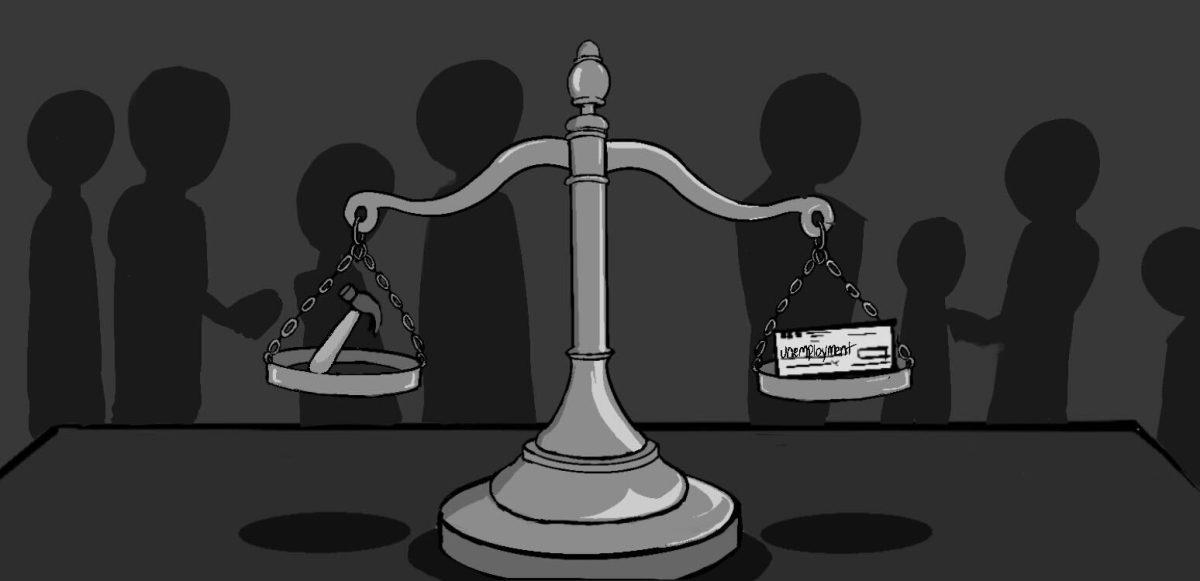In March 2020, the COVID-19 pandemic forced the U.S. into the most severe economic crisis since the Great Depression, decimating the American worker. At its peak adjusted employment rate, nearly 23% of the country was unemployed, according to Rakesh Kochhar and Jesse Bennett of the Pew Research Center. Mass closure of businesses, social distancing requirements and pandemic paranoia shattered the U.S. market, rendering millions of Americans unemployable through no fault of their own. These Americans needed some source of income to navigate the pandemic and provide for their families. Since the government put them out of a job, national leaders took it upon themselves to ensure American families had the financial means to support themselves.
This was done through a series of economic recovery programs and massive social safety nets on a level the U.S has not seen in its history. The federal government has passed six separate COVID-19 relief bills, beginning in March 2020, to distribute to American businesses and families an amount equating to over five trillion dollars of government spending over the course of the pandemic’s two years. In context, according to Pandemic Response Accountability Committee Chair Michael Horowitz in the group’s semiannual report to Congress, “just one pandemic program—the $800 billion Paycheck Protection Program (PPP)—is equal to the federal government’s entire response to the 2008-2009 financial crisis.” Now, two years later, a new kind of financial challenge has emerged, a new war on work.
Two years of government benefits has disincentivized the American worker and stagnated the U.S. economy. The government undercut itself by allowing people to earn a similar income from staying home as working citizens and let the American taxpayer foot the bill. The time for stimulus bills and increased unemployment packages has long since passed. We must open our nation through work to revive the American economy.
The most glaring issue with the reckless aid provided by the federal government is the amount of money frivolously allocated to unemployed individuals.
According to ZipRecruiter.com, the average person in the state of Mississippi earned around $1,202 weekly and around $62,497 annually. This figure is derived from an average of all wage earners in the state of Mississippi who possess a job. In the current market, following the initial dip in employment at the beginning of the pandemic, thousands of job openings are available. This allows any individual who seeks employment the means to find it. So, one would think the government should seek to stimulate the economy through encouraging the previously unemployed to find work and revitalize the American workforce, but the government incentivizes the opposite instead.
At peak pandemic, according to Geoff Pender and Bobby Harrison for Mississippi Today, unemployment benefits were upwards of $535 a week, which equates to $27,820 a year. Based on the unemployment benefits provided due to the COVID-19 pandemic, those who are employed within the bottom 9% of wage earners, who earn $17,763- $26,861 annually according to ZipRecruiter.com, would earn less by going to work than those who subsist at the expense of the American taxpayer. In addition to the utter slap in the face of those who choose to work, the addition of stimulus checks places an additional tax burden on their paychecks to benefit those who choose to leech off the government. The U.S. government is quickly breeding a culture of reliance by dolling out large sums of money to all members in a society. The three separate stimulus packages issued to Americans by the government over the course of the pandemic’s two years equates to approximately $3,200, assuming the recipient qualifies for maximum aid. In addition, parents with children under the age of 17 received a $500 tax credit for each child.
At the beginning of the pandemic, people who had lost their jobs due to the government putting them out of work needed assistance making ends meet, but now the economy finds itself in a different position. According to Haley Messenger of NBC News, the breakdown of stimulus spending can be seen in 13% nonessential spending, 32% paying down debts, 11% investing and only 45% accounting for the paying of monthly bills in which the money was allocated originally. Future generations are going to be heavily taxed for decades following the COVID-19 pandemic’s end to pay for this stimulus spending. This burden will only increase should more economic recovery programs be adopted as the pandemic continues. If the desired goal of the U.S. government is the “return to normalcy” we have been promised for the last two years, the first step on the road to recovery starts with everyday Americans. Americans need to reclaim control of their own financial futures—it is high time we all get back to work.
Categories:
Time to get back to work: pandemic handouts are breeding stagnancy
0
Donate to The Reflector
Your donation will support the student journalists of Mississippi State University. Your contribution will allow us to purchase equipment and cover our annual website hosting costs.
More to Discover






